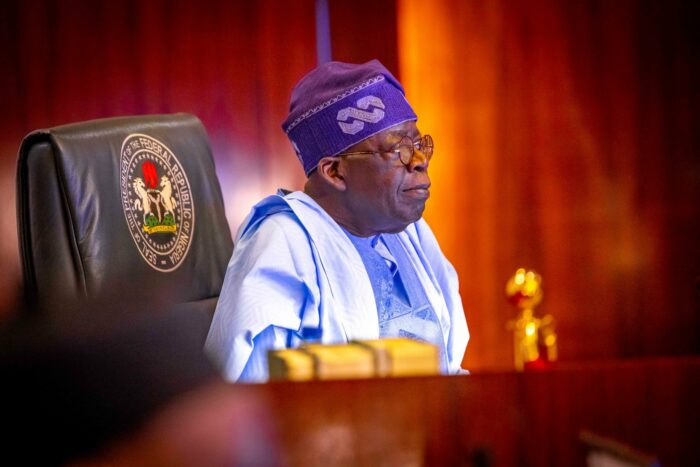Health
Reflecting on health sector, one year under Tinubu

President Bola Tinubu, like every other politician eyeing the highest office, promised during his campaigns in 2023 to rectify past mistakes and safeguard the health of Nigerians.
Some of the challenges of the sector include high infant and maternal mortality, malaria and tuberculosis burden, HIV/AIDS burden, brain drain and a host of other issues.
As Tinubu’s administration approaches one-year, some Nigerians say the government has done well, while others say a lot more needs to be done to tackle healthcare challenges in the country.
As of 2022, Nigeria’s maternal mortality stood at 512 maternal deaths per 100,000 live births, far above United Nations Sustainable Development Goal (SDG) target of less than 70 per 100,000, while under-five mortality was 102 per 1,000 live births, with significant regional disparities.
Nigeria’s life expectancy in 2022 was about 55.1 years for men and 57.2 years for women. Additionally, Nigeria has a significant HIV/AIDS burden and remains heavily affected by malaria and tuberculosis.
Under President Tinubu’s administration, Nigeria has seen notable initiatives in vaccination rates, particularly following the COVID-19 pandemic.
In 2024, Tinubu’s government emphasised increasing local vaccine production capabilities, engaging with Gavi, the Vaccines Alliance, to produce vaccines in Nigeria.
This is part of a broader strategy to ensure equitable vaccine access and enhance the country’s self-reliance in managing public health crises.
The administration has committed to fulfilling financial contributions for routine vaccinations, a critical step in maintaining and improving vaccination coverage across the country.
In spite of these efforts, however, systemic issues like healthcare infrastructure and resource allocation continue to pose significant challenges.
The economic downturn in 2023, including the removal of petrol subsidy and the departure of multinational companies, has strained healthcare affordability and accessibility, exacerbating issues such as drug price inflation and the emigration of healthcare professionals.
In the Federal Capital Territory, Mrs Folake Oladipo, a civil servant and mother of three, who represents many Nigerians with health challenges, recounts her harrowing experience with the healthcare system.
“Last month, my youngest son had severe fever and we rushed him to the general hospital, only to find it overcrowded and understaffed. We had to wait for hours before he could see a doctor.”
Her story is not different from many others, as families grapple with similar ordeals, navigating a healthcare system that seems under strain.
Dr Adedolapo Fasawe, the Mandate Secretary of Health Services and Environment Secretariat of the FCT, identified the dearth of human resources for health as major challenge facing over 300 Primary Healthcare Centres (PHCs) in the nation’s capital city.
Healthcare workers also expressed their discontent, citing overwork and underpayment, with many leaving for better opportunities abroad.
The administration has, however, set ambitious goals, including constructing new hospitals, refurbishing existing ones, and implementing measures to achieve Universal Health Coverage (UHC).
A visit to a newly established primary health centre in Kano State offers a glimmer of hope, as the facility, funded through a Public-Private Partnership, boasts of modern equipment and dedicated staff.
Mrs Fatima Ibrahim, a nurse at the centre, spoke positively about the changes, saying “we are seeing improvements here. More patients are coming in, and we have the resources to treat them effectively.”
However, such success stories are exceptions rather than the norm. In rural areas, access to quality healthcare remains a significant challenge.
Some communities in remote areas lack basic medical facilities, forcing residents to travel long distances for treatment.
Since President Tinubu assumed office, several health interventions have occurred, as the administration introduced policies aimed at improving healthcare, focusing on financing, insurance schemes, and public health initiatives.
One notable policy is the National Health Insurance Authourity (NHIA), designed to provide affordable and accessible healthcare services to all Nigerians.
By enrolling in NHIA, individuals can access a range of healthcare services without facing harsh financial barriers.
Additionally, the administration focused on revitalising primary healthcare centres across the country, which serves as the first point of contact for many Nigerians seeking healthcare services.
By investing in the infrastructure and staffing of the centres, government aims to improve access to basic healthcare services for communities in need.
Furthermore, the administration passed notable legislations impacting healthcare delivery and funding, such as the Health Act, which regulates the health sector and ensures the provision of quality services.
This legislation has paved the way for greater accountability and transparency, ensuring efficient resource allocation.
However, in 2023, the Nigerian economy faced severe challenges, including the closure of small businesses due to removal of petrol subsidy, foreign exchange scarcity, and power supply shortages.
The departure of multinational companies further strained the economy, leading to drug price inflation, exacerbating healthcare affordability issues.
The emigration of healthcare professionals, known as “Japa,” intensified, worsening shortages in the healthcare system.
To address these challenges, the President announced substantial investments and increased funding for the health sector in the 2024 budget.
The sector also saw advancements through the adoption of healthcare technologies by digital startups, although they faced regulatory hurdles and concerns about service quality.
In addition to these challenges, the COVID-19 pandemic had exposed the vulnerabilities of the health sector, as insufficient preparedness, vaccine distribution delays, and overwhelmed healthcare facilities underscored the need for comprehensive health reform.
In spite of challenges like import dependency and limited local manufacturing, the administration remains committed to addressing issues through policy reforms, regulatory improvements, and expanded access to capital.
Efforts include strengthening pharmaceutical regulation, increasing local production, and enhancing healthcare financing to expand health insurance coverage.
As President Tinubu’s administration approaches its one-year anniversary, the health sector’s mixed results underscore the complexity of delivering electoral promises.
Therefore, as Nigerians reflect on the first year of President Tinubu’s administration, it is evident that the health sector requires urgent attention, bold leadership and decisive actions for the better.




 Davido's Net Worth & Lifestyle
Davido's Net Worth & Lifestyle 
